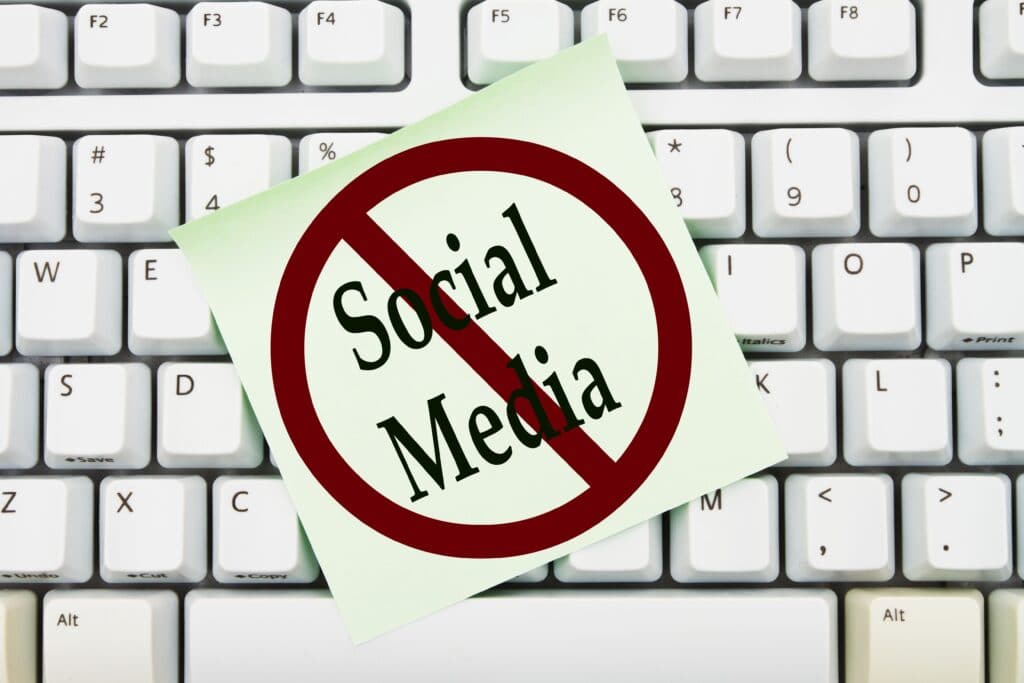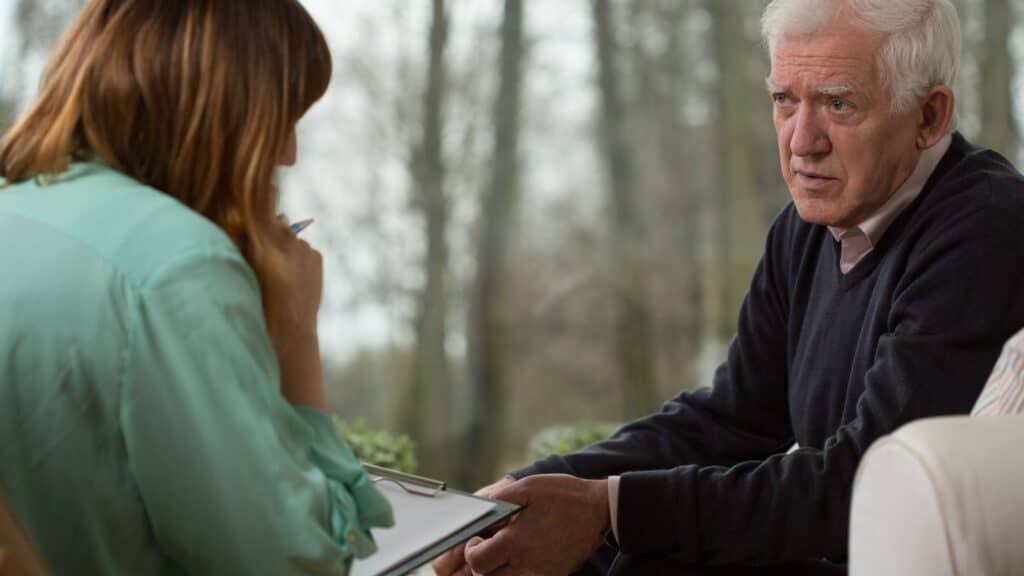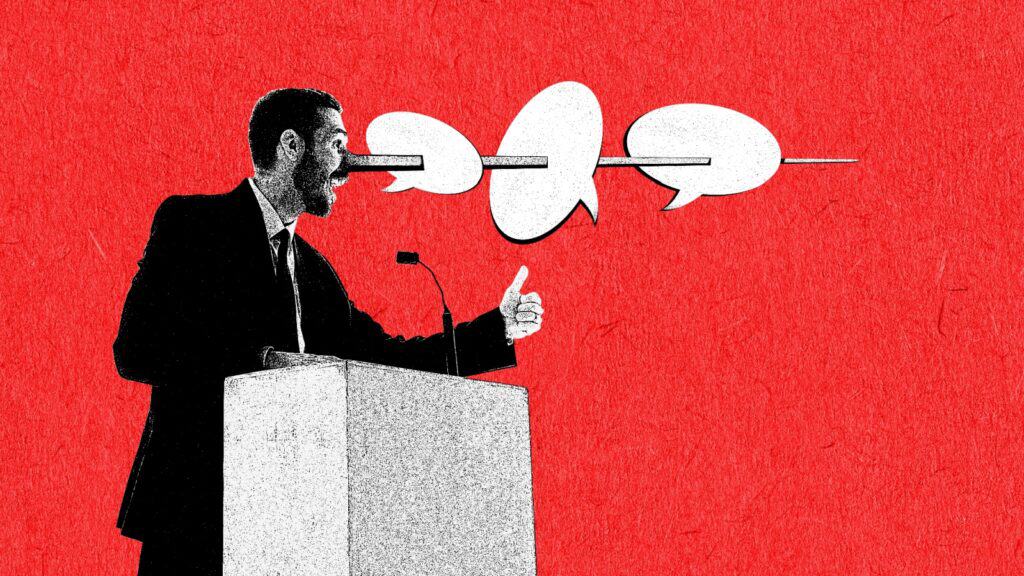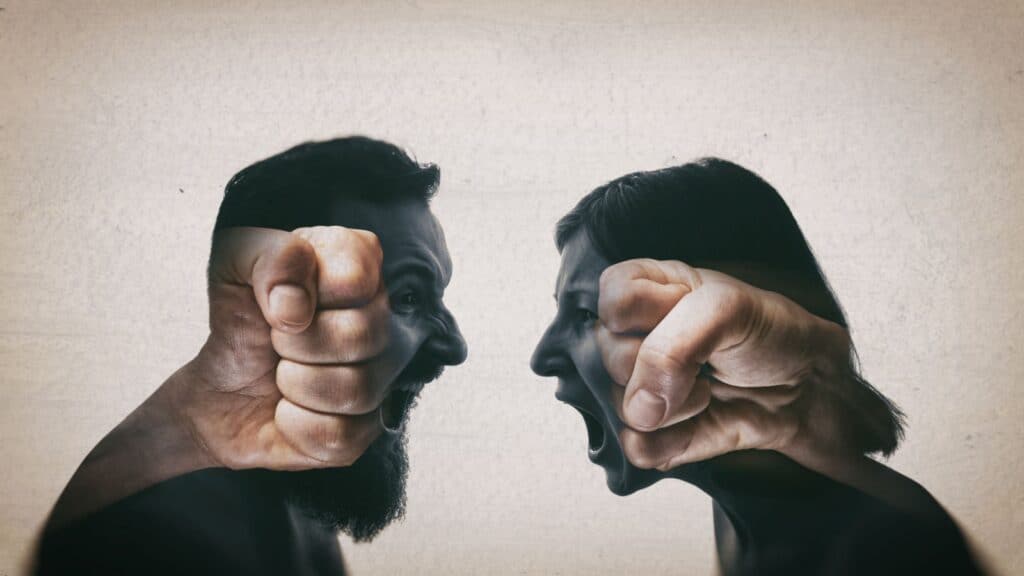7 Mental Health Tips for Staying Grounded During Election Season
We don’t know about you, but we’re stressed about this election. And that’s completely normal but doesn’t mean we should let our mental health slip in order to stay involved.
Navigating the stress of a presidential election season can be challenging, especially during such a polarizing time. Whether you’re already swimming in “election anxiety” or just want to stay on top of your mental health, we have some tips.
Limit News Exposure

Yes, it’s important to stay on top of the news, but don’t get carried away. To manage stress during the election season, it’s crucial to limit your news exposure. You can’t inundate yourself with news or you’ll lose your mind.
Set specific times each day to check the news, ensuring that you avoid doing so right before bed to prevent anxiety that makes it hard to sleep.
Consider using news aggregators to filter relevant information and set a daily time limit for news consumption to avoid feeling overwhelmed. For example, with Apple Focuses, you can mute notifications from certain people or apps.
By controlling when and how you engage with news, you can maintain a sense of balance and prevent the constant barrage of information from affecting your mental well-being.
Unplug from Social Media

Unfortunately, turning off the news or stopping CNN notifications isn’t always enough. Social media is a hotbed for political discussions (usually arguments) during elections. This can amplify stress when differing opinions are prevalent, which they almost always are.
Take intentional breaks from social media to clear your thoughts and prevent screen burnout. Use this time for some of the self-care activities we’ve discussed, like soothing hobbies or mindfulness practices.
By unplugging from social media, you create space for reflection and reduce the constant noise of political discourse. This practice helps you maintain a balanced perspective and healthy mental state as things get nasty online.
Make Mindfulness Part of Your Routine

We know this is the answer people give for literally any problem, but what can we say? Mindfulness is a powerful tool for staying grounded during stressful times.
Engage in mindfulness or relaxation techniques to center your thoughts and emotions. This can include deep breathing exercises, meditation, journaling, a quiet nature walk, or simply taking a moment to reflect on your feelings.
Mindfulness practices help you stay present and reduce anxiety by focusing on the here and now. During elections, we often feel like so many things are out of our control, so this can help us regain some power.
Regular mindfulness practices can enhance your emotional strength and confidence, allowing you to navigate the election season with a calmer and more balanced mindset. But we recommend taking your mindful habits beyond election season too.
Engage in Healthy Distractions

When the political anxiety creeps up, focus on hobbies or interests that bring you joy, such as reading, knitting, video gaming, cooking, baking, gardening, or exercising. These activities can help shift your focus away from political stressors and provide a mental break.
Engaging in activities you love not only boosts your mood but also helps you maintain a sense of normalcy and control.
Maybe you can’t single-handedly choose the next leader of the free world, but you can control how many chocolate chips you put in your cookies. And we give you permission to load those babies up with a ridiculous amount of chocolate — you’ve earned it.
Finding healthy distractions can be an effective way to manage stress during the election season. By dedicating time to these pursuits, you create a buffer against the anxiety that can arise from constant political discussions. You’re not burying your head in your sand, you’re just taking a break.
Set Boundaries in Conversations

Setting boundaries in political conversations is essential for maintaining mental wellness. We know this one isn’t easy. It can be awkward and uncomfortable, and even create a hostile situation.
When discussing politics with friends or family, express your boundaries clearly and respectfully. Boundaries can look like politely refusing to share your opinion, asking people not to share or include you in political social media posts, or asking people to only bring up politics if they can be calm and respectful in conversation.
Step Back or Redirect

If any political discussions cause distress, decline to engage at all or redirect the conversation to a neutral topic. It’s important to prioritize your mental health by recognizing when a conversation becomes too heated or intense.
By setting these boundaries, you protect your emotional well-being and foster healthier relationships, even with those who hold differing views. And if those people can’t or won’t respect your boundaries, it’s okay to walk away.
Acknowledge Your Emotions

Acknowledging your emotions can help you process them, and during an election as polarizing and serious as this one, you likely have a fountain of emotions inside you. Recognize and name your feelings, whether they are excitement, frustration, or anger.
By being aware of your emotions, you can develop effective coping strategies and make informed decisions about how to engage with political content. Embracing your emotions as valid and normal allows you to process them in a healthy way, fostering emotional resilience.
Engage In Mindful Activities

For example, if you recognize you’re overwhelmed, you can step away from the news and do something mindful. If you recognize you’re angry or sad, this might be a good opportunity to journal.
This practice is especially important when engaging in uncomfortable or provocative political conversations. It can help you keep your cool if someone begins to aggressively share their views or bash yours.
Seek Support

In the end, this political turmoil may be too much for you to handle by yourself, and that’s okay. You are far from the only person who feels like they need a little extra support during such a tumultuous time.
If political anxiety significantly impacts your mental health, consider seeking professional support, personal support, or online support. Finding support outside of yourself can help you navigate complex emotions and feel seen and heard.
Speak With A Therapist

Talking to a therapist or counselor can provide valuable coping strategies and a safe space to vent. You can also talk to friends or family members who you know share your views and anxieties concerning the election. Support groups or online communities can also offer a sense of shared experience and understanding.
By reaching out for support, you prioritize your mental health and equip yourself with the tools needed to manage election-related stress effectively. And when you do that, you’re better able to participate in the election in meaningful ways.
Know Your Limits, And Respect Them

We explained how important it is to set boundaries during election season — social media boundaries, conversation boundaries, news boundaries. Well, it’s also important to set boundaries with yourself.
Even if you want to be involved in the election and make a difference in the outcome, there’s only so much one impassioned person can do.
Remember, no matter who wins, after the election, you have to go back to your everyday life. So don’t burn yourself out. Take care of yourself, always.
Helping During Election Season: 9 Low-Key Ways to Make a Big Impact

Election season is a critical time in any democratic society, where the voices of citizens shape the future of their communities, states, and countries. While many people think of election season as a time dominated by political rallies, debates, and intense campaigning, there are numerous subtle yet impactful ways that individuals can contribute to the democratic process. These actions don’t require grand gestures or full-time commitments; instead, they offer accessible opportunities for anyone who wants to make a difference.
READ: Helping During Election Season: 9 Low-Key Ways to Make a Big Impact
Think Your Vote Doesn’t Matter? These Close Calls in History Prove Otherwise!

Voting is a fundamental right and a cornerstone of democracy. It is the mechanism by which citizens participate in the governance of their country, ensuring that their voices are heard and their interests represented. Despite its importance, voter turnout often falls short, with many people feeling that their single vote does not matter in the grand scheme of things. However, history has shown that votes can indeed make a significant difference, sometimes determining the outcome of an election by the slimmest of margins. This article will explore why voting is so important and provide examples of critical moments in U.S. history when close votes have shaped the nation.
READ: Think Your Vote Doesn’t Matter? These Close Calls in History Prove Otherwise!
Spot the Lies: A Guide to Detecting Misinformation in Political Ads

In an age where information flows rapidly and easily across various media platforms, political advertisements have become a significant tool for influencing voters’ opinions. However, these ads are often laced with misinformation, half-truths, or misleading claims designed to sway public perception. Detecting misinformation in political ads is crucial for making informed decisions and fostering a healthy democratic process. This article explores various strategies and tips to help you identify and guard against misinformation in political advertisements.
READ: Spot the Lies: A Guide to Detecting Misinformation in Political Ads
Has the United States Ever Been This Politically, Socially and Culturally Divided in the Last 100 Years?

Every day we wake up to more news about how divided our country is and how increasingly angry and intolerant we are becoming of each other. It is not uncommon for many of us to feel anxiety and fear that we are headed in a direction we cannot return from. Has the United States ever been this politically, socially and culturally divided in the last 100 years? History says yes. And the influences on social divisions have been shifting.
Experts Reveal The Alarming Truth About Adult Bullying

Until recently, anti-bullying advocacy has focused primarily on youth. However, adult bullying is on the rise and poses significant risks to our collective mental and physical well-being. As a journalist who has experienced online bullying for years, I sought to better understand the nature and impact of this rise and what, if anything, we can do about it. This article for The Queen Zone results from a series of interviews I conducted with experts in this field. READ: Experts Reveal The Alarming Truth About Adult Bullying
Join Us

Join us on this empowering journey as we explore, celebrate, and elevate “her story.” The Queen Zone is not just a platform; it’s a community where women from all walks of life can come together, share their experiences, and inspire one another. Welcome to a space where the female experience takes center stage. Sign up for our newsletter so you don’t miss a thing, Queen!







